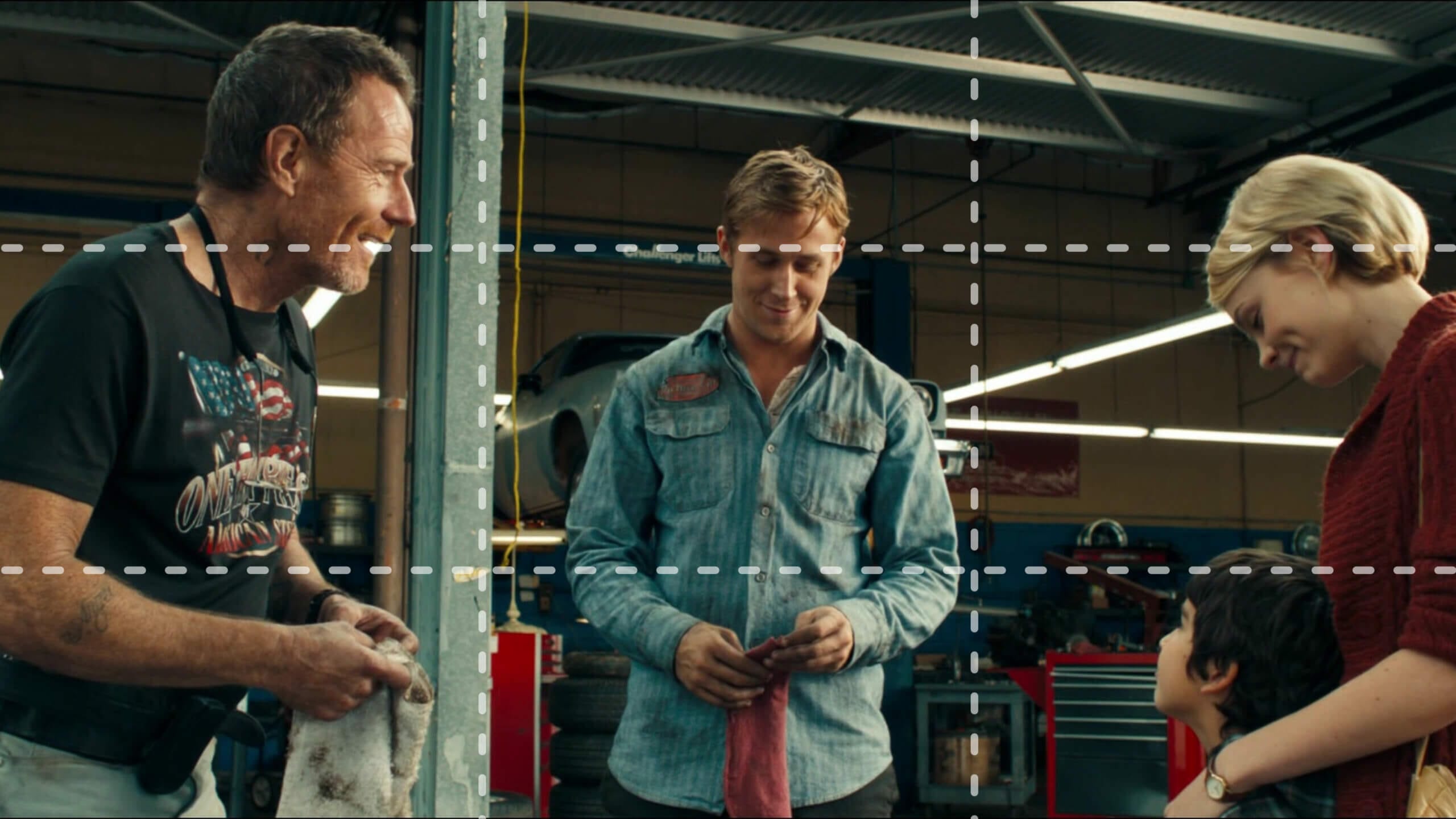Telling a story isn’t enough. You have to grab your audience by the eyeballs. Whether you’re a seasoned director or just learning what framing in film is, the way we see things is just as important as the things themselves. In his video essay on Drive, Tony Zhou uncovers 4 simple rules of composition that can make your shots out-of-the-box.
How to Show Deeper Meaning in a Single Frame
Rules of Composition
Tell two stories at once
The more we have to take in, the more our eyes move. The more our eyes move, the more we invest. It’s a rule of composition.
By placing your stories side-by-side, you challenge the audience to keep up. You explain how your stories interact.
Not to mention, you save screen time for explosions.
Take a look at Drive.
Divided by a red line, the shot tells two complementary stories at the same time. As Carey Mulligan (left) and Ryan Gosling (right) enter their respective apartments, he flashes her a longing glance while she rushes her laundry inside, barely noticing.
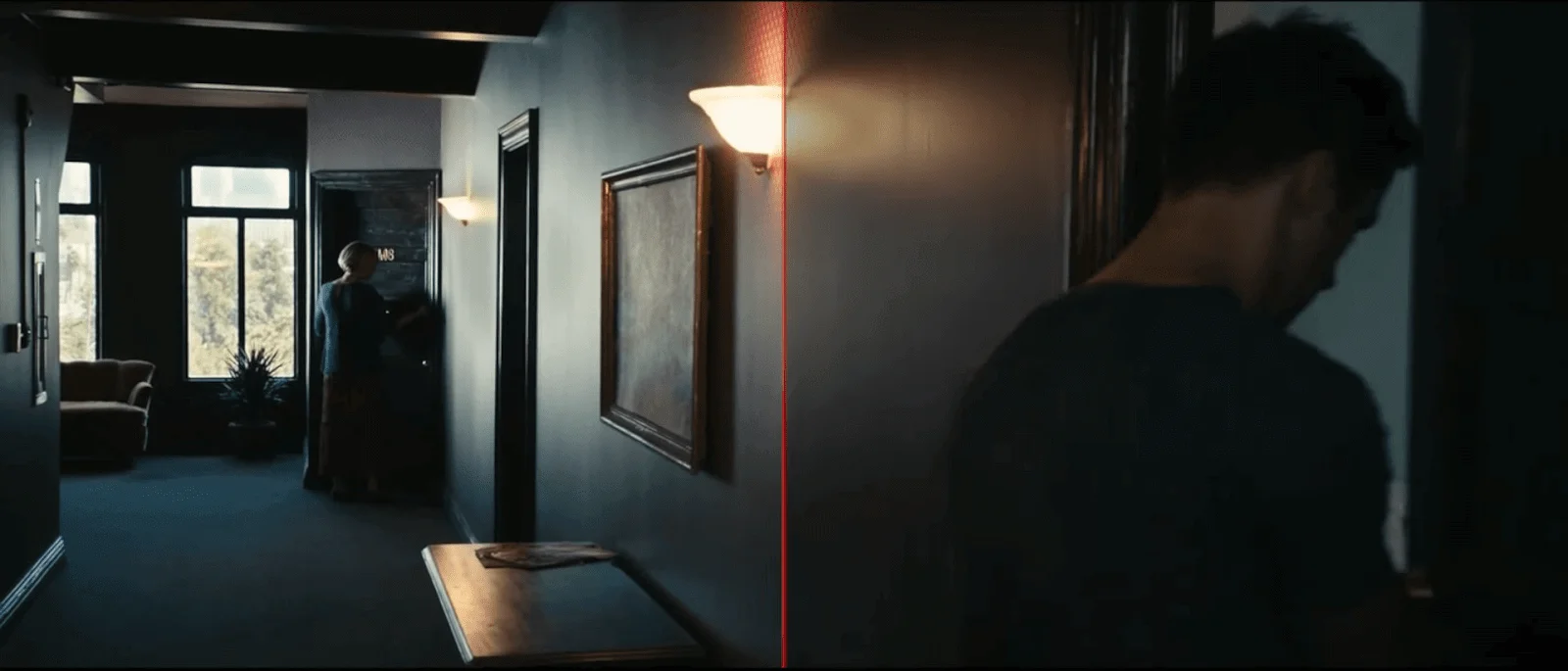
Rules of Composition, Drive
We immediately know their relationship--lover and object of his eye.
By de-crowding the shot, the director has forced us to pick out the details, making us work to feel the tension.
EXERCISE
There’s a huge difference between the what’s on page and what’s on screen--what’s face value and what layers behind it.
Find a subplot in your script. Try telling it in the foreground of another scene.
Related Posts
composition meaning
Flesh out your characters
Details, details, details. A guy saying, “I love you” is a lot different than a guy saying, “I love you,” while holding out a ring.
Details, small or large, build up our stories, but can often distract us. By splitting your shot horizontally, your story can continue on top while subtextual details flourish on the bottom.
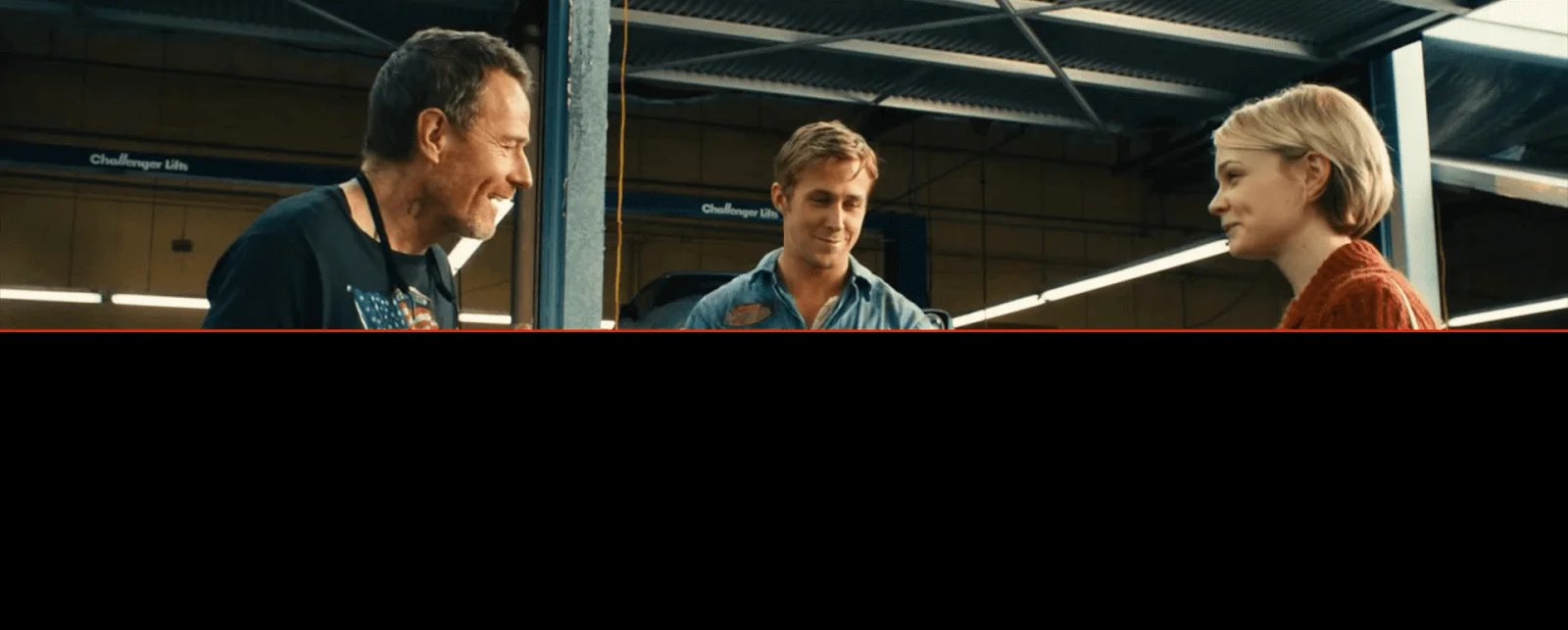
Frame meaning in Drive
Without the bottom half of the shot from Drive, it’s an average scene--aimless chitchat you can find in any Woody Allen movie.
It’s the lower half that rounds out the characters.
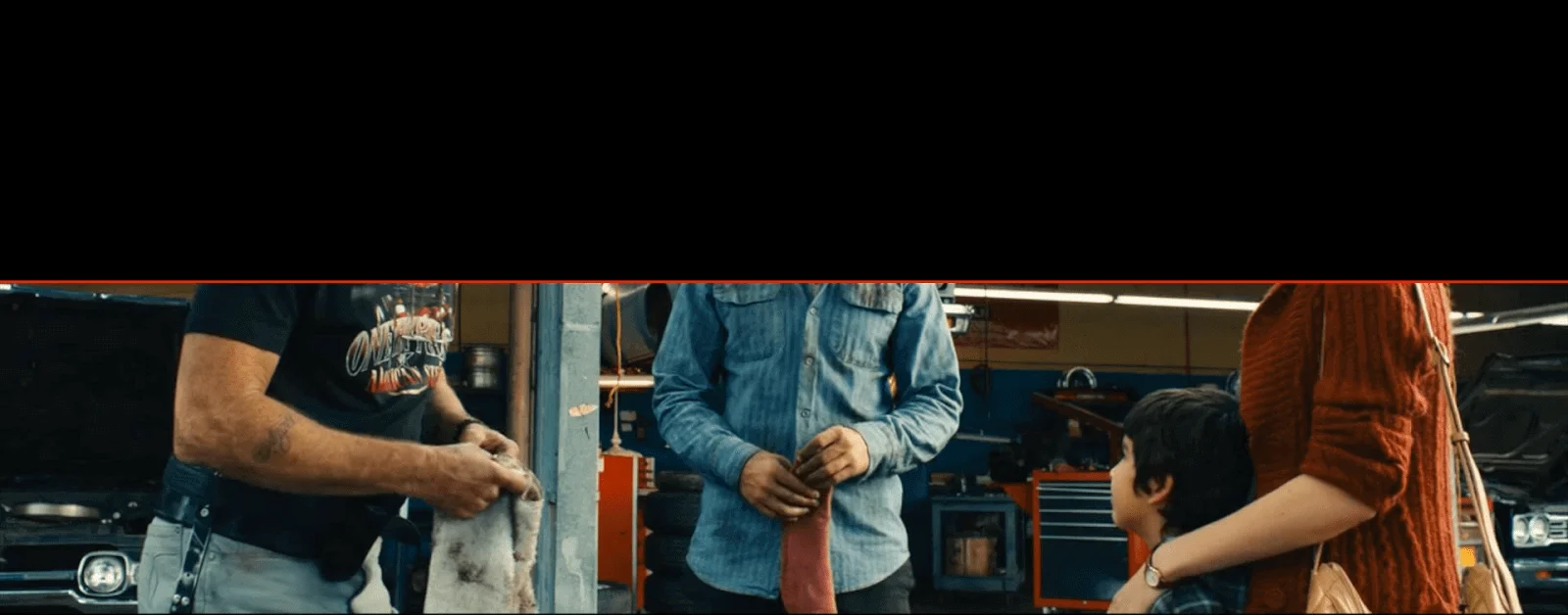
Show deeper meaning w/ horizontal splitting
Using their hands, the director gives us insight into the characters. While Cranston waves his hands like the carefree wild man he is, Mulligan grips on her child tightly. While Gosling listens uneasily, he fidgets with his rag.
Splitting your scene top and bottom gives your actors room to shine, while not distracting from the story.
EXERCISE
It’s not all about the face. Deepen your scene’s meaning by framing an actor’s body language. It’s these microscopic details that keep audiences engaged (and demanding a sequel).
Check out at some camera shots below. Learn each one so they can better assist you with your framing and composition choices.
CAMERA SHOT SIZES
Get Inspired. Explore More Shots.
Master every shot size, and learn unique ways to combine
CLOSE UP SHOTS
MEDIUM SHOTS
WIDE SHOTS
more rules of composition
Let your designers shine
Shifting an actor’s performance to one quadrant leaves ample space for lighting, set design, and that over excited extra to shine. In fact, a prop can often say more than a character ever could, like this mirror in Drive.
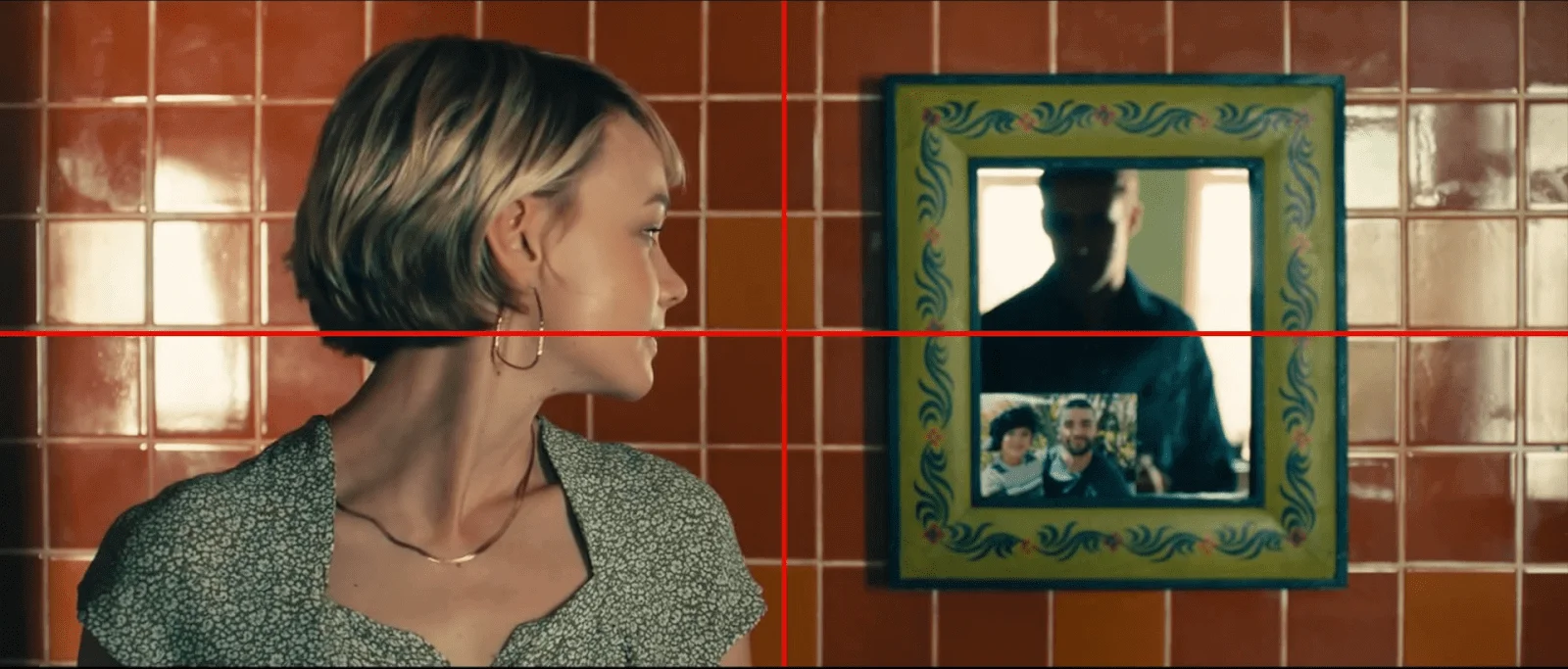
Different frame composition
As Mulligan occupies the left, the choice she has to make splits right--in the top right, Gosling’s reflection and in the bottom, her husband.
Composition rules, here, allowed designers time to showcase their work, telling the story through visuals.
EXERCISE
A well-placed prop can reflect a character’s mood, hint at foreshadowing, or even (gasp) do both.
Take a dialogue heavy scene and work the foreground into it. It’s up to you how much attention you want to give objects. Just be careful.
Related Posts
shower deeper meaning
Underscore your characters
Two characters enter a room. They ache to be with each other, but can’t. It’s a tale as old as time.
But also kinda boring. A little conventional framing can give your scenes much-needed spin.
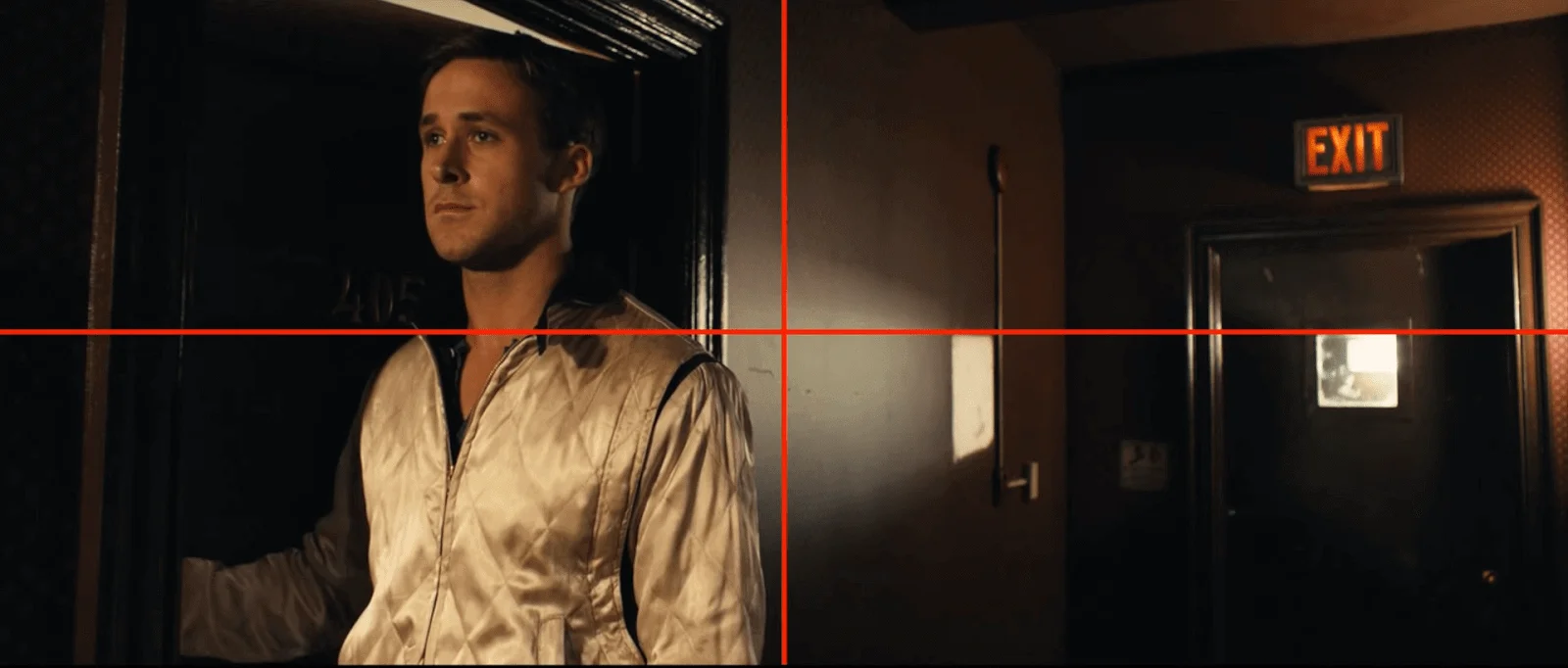
Conventional framing
As Gosling and Mulligan chat, they stand in opposite quadrants.
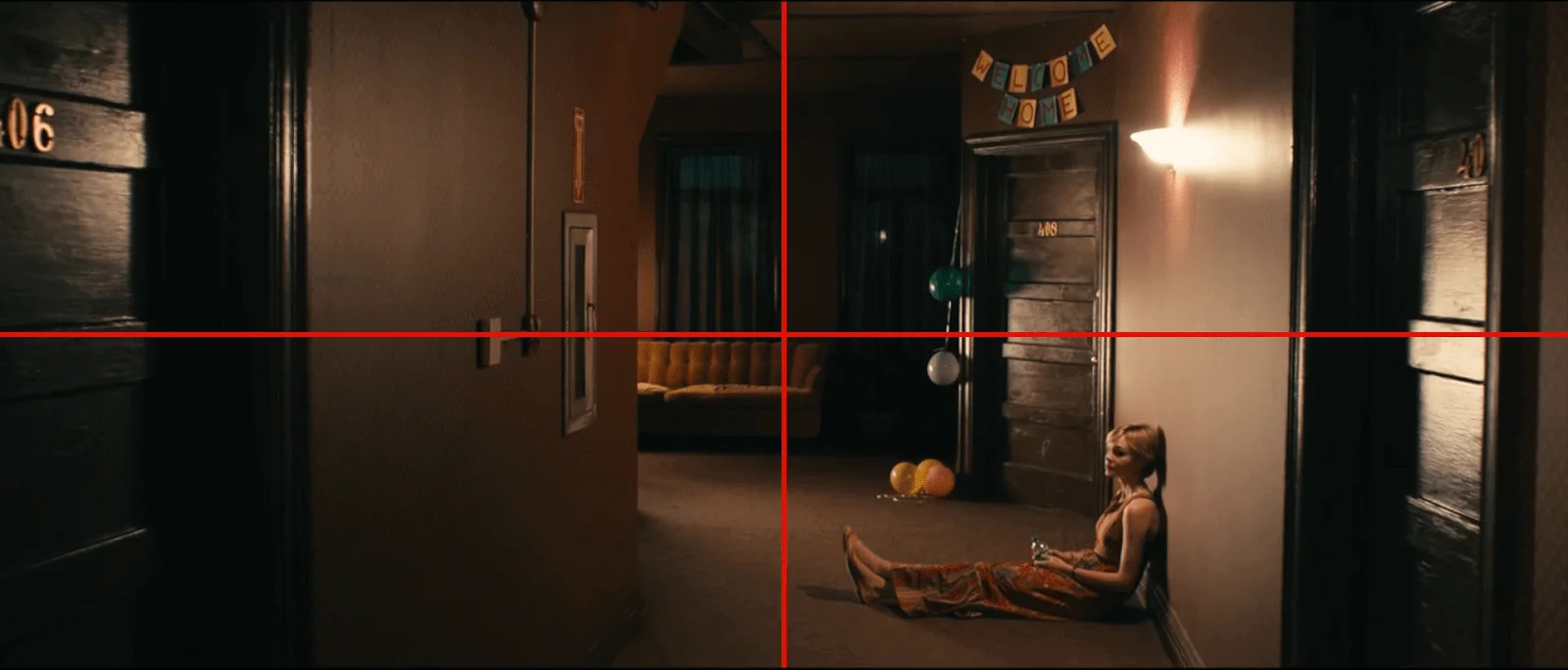
4 Rules of Composition That Will Make your Frames Pop - Drive-6
Our eyes and emotions work in tandem, wishing they’d get together and share center. In a way, the photo grid frame signals lovers to be.
And also rivals.
When Mulligan’s husband (Oscar Isaac) enters, the camera frames him in the same quadrant as Gosling.
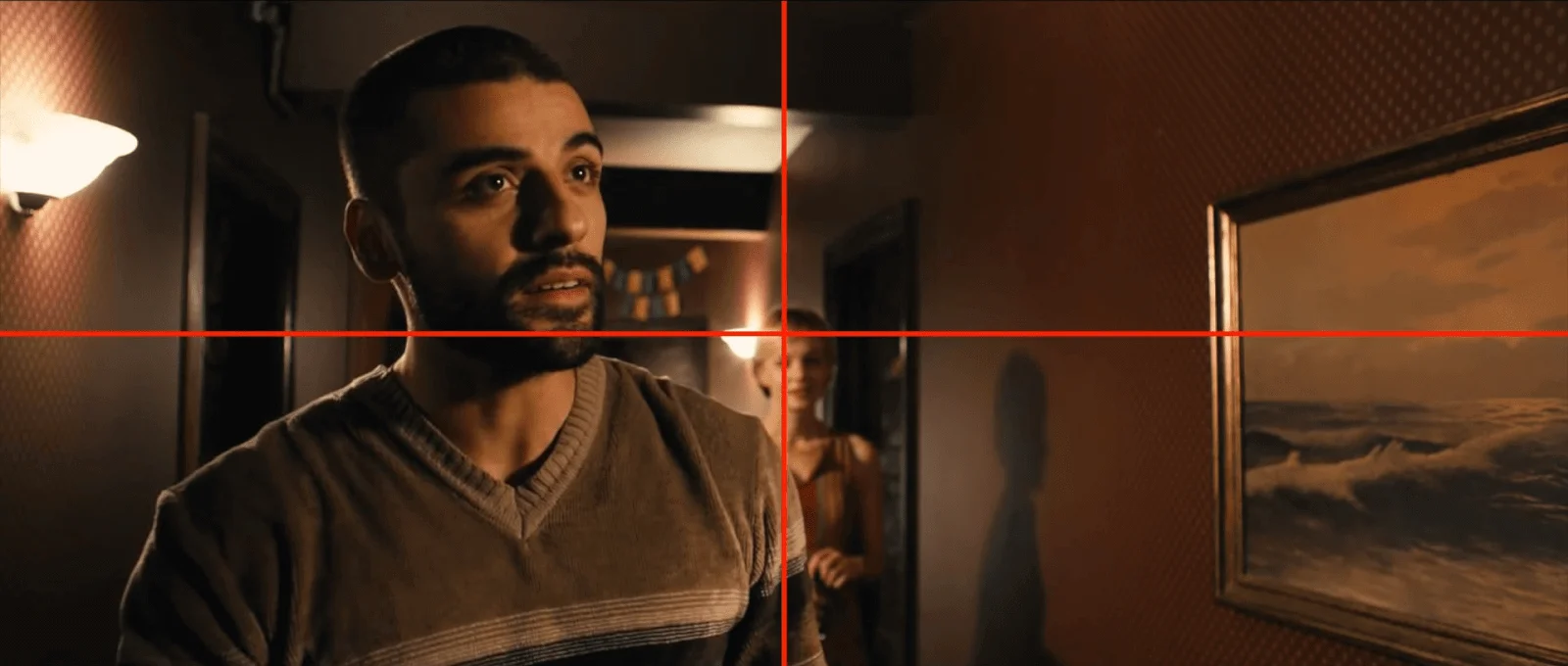
Frame composition in Drive
They both occupy the same position on screen and in the plot. Mulligan, the center of their attentions, accordingly moves to center of the shot.
Following composition rules can reinforce themes too on the nose for even the best dialogue. The distance between two actors doesn’t merely allude to a relationship--it defines it.
EXERCISE
During film blocking, have your actors run a scene at various distances from each other. See how it changes, enhances, or undermines the central action.
Have them get right in each other’s faces, just for fun.
Related Posts
no rule, rule
What are the rules of composition?
In truth, there are none.
At the end of the day, composition rules, framing in film, rule of thirds only matter, because they get us thinking about our films visually. And framing is just one of many ways to do so.
Next time you’re watching a movie or TV show, try visualizing a quadrant and see how it interprets the story.
You don’t need a Hollywood budget or Ryan Gosling’s face to make your shots drip with flare.
Although, it can’t hurt.
up next
Rules of Shot Composition
While there are no steadfast rules, there are some guidelines that can make your shots stronger and bolster your narrative. If you want to learn more about depth of field, framing, and motivated camera movement, take a look at our next post.
Up Next: Rules of Shot Composition →
Showcase your vision with elegant shot lists and storyboards.
Create robust and customizable shot lists. Upload images to make storyboards and slideshows.
